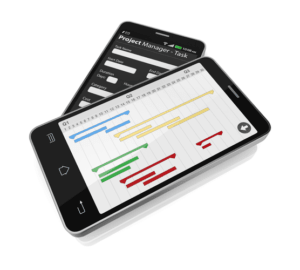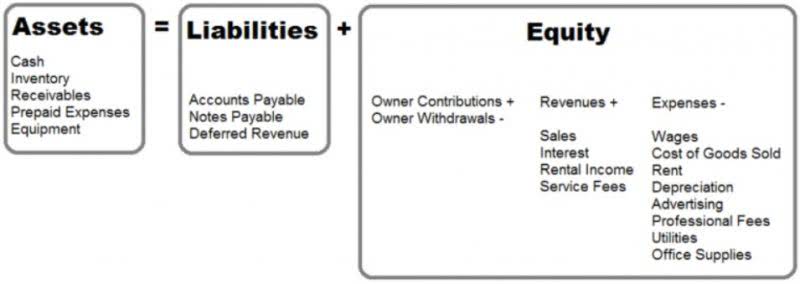
It’s important to record any losses in your accounts, because that will reduce your overall tax bill. You won’t want to be taxed on something that’s been destroyed, or on a profit that you haven’t made. In most countries, the cost of new equipment can be offset agriculture accounting against tax. And its value will depreciate over time as it becomes older, wears out or is made obsolete by newer technology. Make sure you understand the rules for depreciation in your country, because the value of your equipment will affect your tax bill.
Analyzing Farm Financial Performance
- You won’t want to be taxed on something that’s been destroyed, or on a profit that you haven’t made.
- Guidance on the determination of fair value is available in IFRS 13 Fair Value Measurement.
- Quite often governments get it wrong, leading to surpluses that drive down prices too far.
- He enjoys going beyond his role as an auditor to help clients identify cost-savings and areas of improvement.
- Recognizing these payments requires an understanding of the program’s stipulations and the appropriate accounting period in which to record the revenue.
- But, some aspects of agricultural accounting—like livestock and land—are specific to farming businesses.
Agricultural accounting, or AG accounting, is the process of accounting for your farm, ranch, or related business. Keeping accurate and up-to-date records helps you to prepare for tax time, create financial statements, make informed decisions, and measure your farm’s financial health. Like any business, you need up-to-date accounting records if you run a farm, ranch, or related operation.

Accounting for Farming and Agriculture

Recognizing these payments requires an understanding of the program’s stipulations and the appropriate accounting period in which to record the revenue. There are few other types of business that rely on living produce, whether it’s crops or livestock. That makes farm accounting more complex than other businesses when it comes to assets, liabilities, costs and revenue. This is in stark contrast to the Generally Accepted Accounting Principles (GAAP) accrual accounting used by other businesses.
- But there are a lot of variables within agriculture—crop and fertilizer type, soil texture, conservation practices, and more—that can affect N2O emissions.
- This means you can manage all your resources, suppliers and partners from one place.
- If you have a good handle on agricultural subsidy timeframes, you can inform your long-term strategy to maximize your revenue.
- In addition to financial ratios, benchmarking against industry standards or historical farm data can offer valuable context for a farm’s financial performance.
Keep a Tab on Your Profitability
Seasonality is a unique factor in agriculture that significantly affects accounting processes. Farming cycles often stretch over more than a fiscal year, causing income and expenses to be recognized in different accounting periods. The importance of understanding the timing of cash flows, the cost of https://www.bookstime.com/ production, and farm profitability cannot be overstated. Document the weather if it causes you to see or exchange more livestock than you normally would. The IRS lets certain farm businesses postpone reporting the gain from additional animal sales if you can prove that the sale was weather-related.
- This thorough CPE self study course is specifically tailored for professionals working in or with agricultural businesses, providing an in-depth understanding of the accounting practices unique to this industry.
- You also cannot deduct expenses such as loan repayment, loss of livestock (if you deducted the cost of raising them as an expense), or membership fees (e.g., country club).
- With a global warming potential 273 times that of carbon dioxide, mitigating N2O could make a big difference.
- Liquidity ratios, such as the current ratio and the quick ratio, assess a farm’s ability to meet short-term obligations without selling inventory or making other significant changes to operations.
- They monitor changes in laws, analyze their implications, and implement necessary adjustments to business practices.
- Or, if moving to a livestock farming model, be sure to record the cost of buying stock.
- So make sure you keep track of subsidies and account for them, especially if they’re made as direct payments.
And while our site doesn’t feature every company or financial product available on the market, we’re proud that the guidance we offer, the information we provide and the tools we create are objective, independent, straightforward — and free. We are compliant with the requirements for continuing education providers (as described in sections 10.6 and 10.9 of the Department of Treasury’s Circular No. 230 and in other IRS guidance, forms, and instructions). Learn about the eight core bookkeeping jobs, from data entry to reporting and tax prep. Farming is dependent on the weather, and sometimes the weather wreaks havoc.
Are you looking to switch from legacy tech to an advanced ag-specific ERP tool? Wander said, “In our analysis, reduced-tillage practices varied widely in terms of N2O emissions, showing they aren’t a silver bullet. Only true no-till management consistently brought emissions down.” With a global warming potential 273 times that of carbon dioxide, mitigating N2O could make a big difference. But before mitigation can happen, it’s important to understand where the compound is coming from. Rick has dedicated over 15 years to serving small businesses and individuals with complex tax situations. Rick enjoys tax work because of the evolving nature of the tax code and the opportunity to interact with clients in a meaningful way.
Quick must-knows of farm accounting
The IFRS Foundation is a not-for-profit, public interest organisation established to develop high-quality, understandable, enforceable and globally accepted accounting and sustainability disclosure standards. They develop strategies for maintaining profitability and play a critical role in ensuring compliance with industry and regulatory standards. An agricultural accountant manages the financial aspects of agriculture and guides decisions through risk analysis. Moreover, they ensure compliance with changing regulations and serve as strategic advisors for farmers and agribusinesses.
